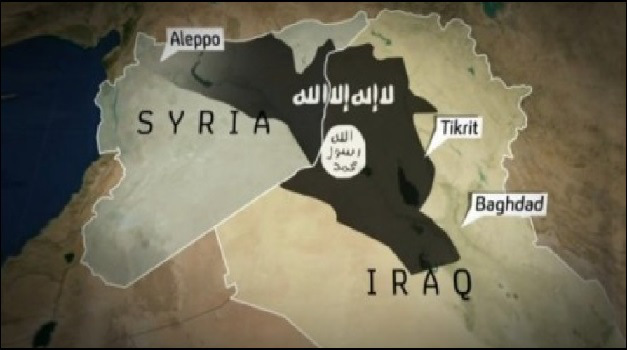By Yaseen Kippie
Amidst the growing political, social and economic crises of the world today, outward violent movements gain enhanced media coverage through breaking news, broadcasting the latest of an almost innumerable amount of terrorist attacks witnessed by the world over. The seemingly insurmountable task of removing these crises is often the result of world governing organizations not treating the problem at its root cause. When treating a problem at its surface level, or with a disguise of what it is not, the problem often resurfaces.
With the Rise of the Islamic State of Iraq and Syria (ISIS) in the Middle East, juxtaposed with the parallel increase in populist rhetoric and fake news, Tim Geschwindt felt the need to link these trends. This led him to conduct his Honours thesis at UCT on the subject, which he called ‘The Spillover of the Islamic State: How the Organization grew in the Middle East.’
“What interested me in understanding the development of ISIS was the fact that the majority of its leaders, even though they were now in Syria, were actually from Iraq. The leaders were all from previous prisons. They were individuals who saw Iraq collapse,” he told VOC Drivetime.
“ISIS, often called Daesh in Arabic to highlight the group’s cruel nature, is a direct result of the US invasion of Iraq. The actions by the US, essentially toppling Hussein, while he had very cleverly balanced the Sunni, the Shia and the Kurds with a non-religious message, and I think by removing Saddam Hussein, and install a Shia government, the Sunni feel underrepresented.”
Geschwindt says the Middle East sits at the crux of understanding the links between Europe, Asia and Africa.
“In terms of contemporary politics, what we do understand is that many of these other regions are stable or stable-ish. Because of that, I have a natural inclination to understand beyond the normal Sunni-Shia conflict. They have lived side-by-side for hundreds of years, how do we then explain the time element while saying it’s a sectarian issue. It does not make sense.”
“It’s a great disservice to the Middle East to say these issues sprang out of nowhere. It starts with the French and British partitioning it along artificial border lines that are essentially focused around oil. The oil empires as they were referred to in the 1920s and 30s, Iraq, Syria and the Levant in general, become cut up along lines where ethnicities and tribes are split in half. What happens as a reaction from the Arab natives against these colonialists, called nationalism…’we are proud to be Iraqi.’ The Baath Party fused this in the people.
According to the academic, since 1980 the Baath Party has been in decline. But with this decline has been a counter rise of parties using religion to their advantage.
“ISIS is creating an Islamic State. Public service delivery has made them successful. Servicing the people with the function of a state…”
“What really fascinated me was Abu Bakr al-Baghdadi, the ISIS caliphate, sending of Jilani into Syria in 2012, starting the so-called moderate rebels. This created external funding, but really gave them an international foothold so they can spill over. But if you look at this closely, the process of [Saddam] Hussein’s military offices becoming the heads of ISIS and how they are actually nationalist and Baathi’s in origin and have very few radical impulses. Hajji Bakr, the top lieutenant of ISIS, did not own a Quran in his home when he was captured. This indicates that there is so much more going on than religion. When you dichotomise situations “Oh! It’s Islam!” then you get people like Donald Trump six thousand miles getting elected. I hoped this thesis could challenge those narratives.”
“Looking at battle maps in Syria, what’s interesting is how little ISIS and Asad come into contact. Considering their rhetoric, I was puzzled. Prof Anette Seagers from UCT suggested that maybe Asad was empowering ISIS to radicalise the rebels, so that he had a viable reason to declare them extremists. Asad facilitates this by releasing extremists from prison. They immediately join the revolution of ordinary citizens, and Asad gets what he wants, which is, “I am the legitimate leader of Syria, and these are terrorists.”
These are the tools of comparison and analysis needed in order to properly understand the current crises of the Middle East and the world at large. Going beyond the surface level disguises of conflict of religion, but one that lies in what some called G.O.D – Gold/Gas, Oil and Diamonds.
Listen to the full interview here:






 WhatsApp us
WhatsApp us 

